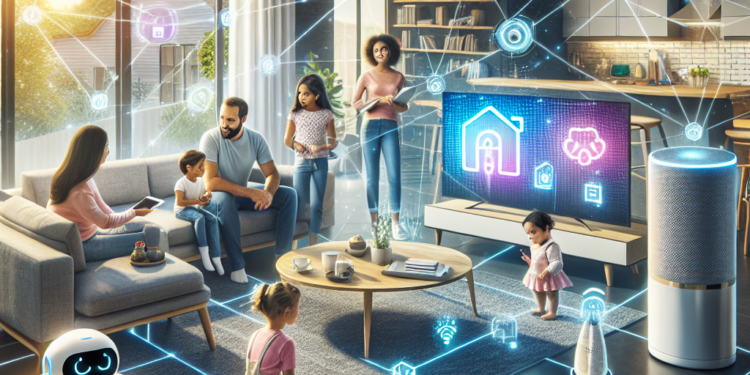Smart homes have come a long way in recent years, with a plethora of new technologies and innovations making them even smarter and more efficient than ever before. One of the key factors driving this trend is the integration of artificial intelligence (AI) into smart home devices and systems.
AI is revolutionizing the way smart homes operate by enabling them to learn and adapt to the habits and preferences of their users. This allows for a more personalized and intuitive smart home experience that can anticipate the needs of its occupants and make their lives easier and more convenient.
One of the ways AI is transforming smart homes is through the use of voice assistants like Amazon’s Alexa and Google Assistant. These virtual assistants can control various smart home devices and systems, such as lights, thermostats, and security cameras, using voice commands. They can also provide information and answer questions, making them a valuable asset in any smart home setup.
Voice assistants are constantly improving and becoming more intelligent thanks to AI developments. For example, they can now recognize and respond to multiple users’ voices, allowing each member of the household to have access to their personalized preferences and settings. This level of customization ensures that everyone in the home can enjoy a truly personalized smart home experience.
Another way AI is enhancing smart homes is through the use of smart sensors and devices that can learn and adapt to their users’ behavior. For example, smart thermostats can analyze a household’s heating and cooling habits and automatically adjust the temperature to optimize energy efficiency and comfort. Similarly, smart lighting systems can adjust the brightness and color of lights based on the time of day and the occupants’ preferences.
AI-powered security cameras are also becoming increasingly popular in smart homes. These cameras can analyze video footage in real-time and detect any suspicious activity or abnormal behavior. They can also send alerts to homeowners’ smartphones if they detect any potential security threats, allowing them to take action quickly and ensure the safety of their home and family.
In addition to enhancing convenience and security, AI is also making smart homes more energy-efficient and environmentally friendly. Smart home devices can analyze energy consumption patterns and suggest ways to reduce waste and save money on utility bills. For example, a smart thermostat can recommend adjusting the temperature settings to optimize energy usage based on occupancy patterns and weather conditions.
AI innovations are also enabling smart homes to be more interconnected and seamless in their operation. For example, AI-powered smart home hubs can unify all connected devices and systems, allowing them to communicate with each other and work together to achieve common goals. This level of integration ensures that smart homes are truly smart and can adapt to the changing needs and preferences of their users.
Overall, AI is revolutionizing the way smart homes operate and making them more intelligent, efficient, and user-friendly than ever before. As AI technology continues to advance, we can expect to see even more innovations and improvements in smart home devices and systems, further enhancing the quality of life for homeowners around the world. The future of smart homes is bright, thanks to the power of artificial intelligence.













